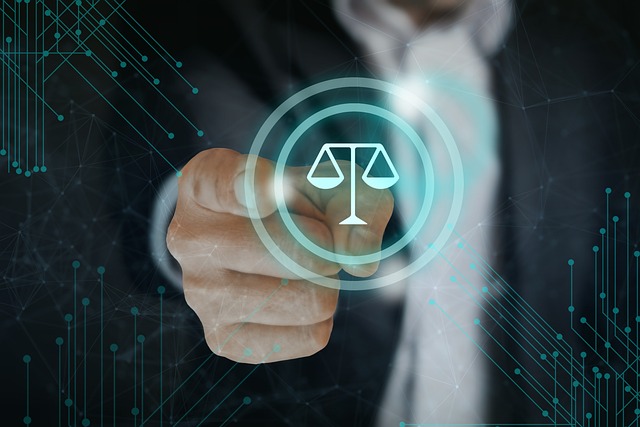Understanding criminal justice system navigation ensures fairness, protects rights, and empowers individuals facing criminal charges. Knowledge of constitutional rights, hearing processes, and strategic defense planning is vital. Defense attorneys guide clients through pre-trial procedures, challenge evidence, and uncover weaknesses. Building a solid defense involves comprehending charges, presenting innocence-supporting evidence, and cross-examining witnesses. Appealing convictions requires identifying procedural errors and ineffective counsel. Effective communication with legal counsel ensures tailored strategies. Post-conviction relief offers a path to justice and redemption for unlawful convictions or sentences.
“Navigating the complex landscape of the criminal justice system can be daunting, especially for those facing charges. This comprehensive guide offers invaluable legal insights into every stage of the process, from understanding your rights at hearings and pre-trial motions to building a robust defense strategy and appealing convictions. We demystify post-conviction relief options, emphasizing effective communication with counsel. By mastering these skills, folks can confidently navigate their way through the intricate tapestry of criminal justice system procedures.”
- Understanding Your Rights in Criminal Hearings
- Navigating Pre-Trial Procedures and Motions
- Building a Solid Defense Strategy for Trials
- Appealing Convictions: Grounds and Process
- Effective Communication with Legal Counsel
- Post-Conviction Relief: Options and Timelines
Understanding Your Rights in Criminal Hearings

In any criminal hearing, it’s paramount to grasp your rights and the procedures involved to effectively navigate the criminal justice system. This understanding is crucial for ensuring a fair trial and safeguarding your interests. Every individual accused of a crime has certain constitutional rights that protect them from unfair treatment and provide a framework for a just process. These rights include the right to remain silent, the right to legal counsel, and the right to confront witnesses against you.
Knowing your rights allows you to actively participate in the hearing, make informed decisions, and challenge any potential violations. It empowers you to ask questions, present evidence, and cross-examine witnesses. By familiarizing yourself with the criminal justice system navigation process, you can better communicate with your attorney, anticipate potential outcomes, and make strategic choices throughout the hearing and appeal stages.
Navigating Pre-Trial Procedures and Motions

Navigating pre-trial procedures is a crucial step in any criminal defense strategy, offering an opportunity to shape the case and ensure fairness within the criminal justice system. This phase involves understanding and utilizing various motions and legal tools to challenge evidence, suppress inadmissible statements, or raise procedural issues that may strengthen the defendant’s position.
Defense attorneys play a vital role in guiding clients through these pre-trial procedures, ensuring their rights are protected. By filing strategic motions, they can navigate the complexities of the criminal justice system, potentially uncovering weaknesses in the prosecution’s case and securing a more favorable outcome for their client before the trial even begins.
Building a Solid Defense Strategy for Trials

Building a solid defense strategy is paramount in navigating the criminal justice system. The first step involves thoroughly understanding the charges and evidence against the defendant, allowing for an effective challenge or mitigation during trial proceedings. Legal counsel plays a pivotal role here, offering insights into potential legal loopholes and crafting a robust defense argument based on existing laws and precedents.
A well-prepared defense strategy encompasses gathering and presenting evidence that supports the defendant’s innocence or reduces their culpability. This may include character witnesses, expert testimony, or physical proof contradicting the prosecution’s claims. Skilled attorneys also employ cross-examination techniques to challenge the credibility of witness testimonies and expose inconsistencies in the prosecution’s case, thereby strengthening their client’s position within the criminal justice system.
Appealing Convictions: Grounds and Process

Appealing convictions is a complex process that requires careful navigation through the criminal justice system. Grounds for appeal can include errors in procedure, evidentiary mistakes, and ineffective assistance of counsel. When an individual believes their rights were violated during their trial or they did not receive adequate legal representation, they have the right to challenge their conviction on appeal.
The process begins by filing a notice of appeal with the appropriate court within a specified timeframe. This triggers a review of the case, where appellate courts examine the record and applicable laws. They may consider new evidence, hear arguments from both parties, or remand the case for further proceedings. Ultimately, if the appellate court finds sufficient grounds, they can reverse the conviction, remit it for retrial, or modify the sentence, ensuring fairness and justice within the criminal justice system navigation.
Effective Communication with Legal Counsel

Effective communication between you and your legal counsel is a cornerstone in navigating the complex landscape of the criminal justice system. It ensures that your rights are protected and that every strategy is explored during your defense hearings and appeals. Clear, open dialogue allows lawyers to understand your unique circumstances, gather essential evidence, and develop tailored arguments on your behalf. This process empowers you to actively participate in your legal representation, making informed decisions throughout the proceedings.
During consultations and meetings, express your concerns, ask questions, and provide all relevant information. Active engagement fosters a collaborative relationship, enabling your attorney to offer sound advice and effective advocacy. Regular communication keeps you updated on case developments, deadlines, and potential outcomes, ensuring you’re well-prepared for each stage of the criminal justice system navigation process.
Post-Conviction Relief: Options and Timelines

Post-conviction relief offers a pathway for individuals convicted in the criminal justice system to seek redemption and justice. This process, often involving petitions or motions, allows defendants to challenge their convictions or sentences if they were unconstitutionally obtained or contain errors. Options include filing a motion for a new trial based on newly discovered evidence, alleging ineffective assistance of counsel, or challenging the legality of the sentence.
Timelines vary depending on jurisdiction and the specific relief sought. Typically, defendants have a limited time—often within a year of the final judgment—to file these motions. Strict deadlines are in place to ensure finality and allow the criminal justice system to move forward. Effective navigation of post-conviction procedures requires legal expertise, as each step demands careful consideration and adherence to procedural rules to maximize the chances of success.






